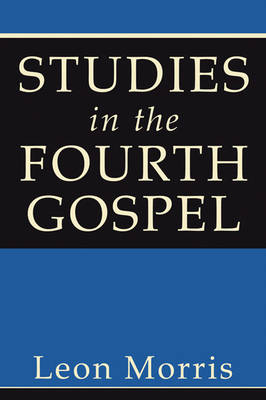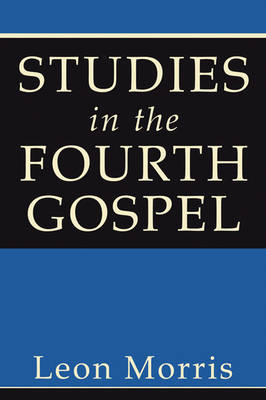
- Retrait gratuit dans votre magasin Club
- 7.000.000 titres dans notre catalogue
- Payer en toute sécurité
- Toujours un magasin près de chez vous
- Retrait gratuit dans votre magasin Club
- 7.000.0000 titres dans notre catalogue
- Payer en toute sécurité
- Toujours un magasin près de chez vous
Description
These in-depth studies on the Gospel of John, written by the man who describes himself as a 'conservative evangelical, ' demonstrate that the application of the critical method to an understanding of scripture need not rule out an acceptance of inspiration. Dr. Morris is here concerned with the authorship of the fourth Gospel, its relation to the Synoptists, the origin and date of writing, and with other similar issues. To his discussion of these issues he brings both his impressive scholarship and firm commitment to the revelatory nature of the Bible. The result is an informed and articulate statement of the conservative position on the many crucial questions raised by John's Gospel. In his Preface to this volume, Dr. Morris notes that Critical Protestant scholars and Roman Catholics are reading one another's works and discussing one another's writings with charity and mutual profit. Perhaps it is not too much to hope that both will include the conservative evangelicals within the scope of their reading and charity. In the hope that it will make some small contribution to the continuing dialogue this book goes forth. From within the biblical tradition we must insist and confidently expect that the more profoundly and validly we understand and interpret the Bible, the greater the religious depth with which it will challenge and speak to us. It is precisely here that modern biblical scholarship has proved itself so insipid and unstimulating. We are confronted with the paradox of a way of studying the word of God out of which no word of God ever seems to come, with an imposing modern knowledge of the Bible which seems quite incapable of saying anything biblical or thinking biblically. --J. V. Langmead Casserley Leon Morris (1914 - 2006) retired as principal of Ridley College, Melbourne, Australia, in 1979. He authored more than forty books, including 'The Apostolic Preaching of the Cross, ' the volumes on Matthew and Romans in The Pillar New Testament Commentary, and the volumes on John and the Thessalonian epistles in The New International Commentary on the New Testament.
Spécifications
Parties prenantes
- Auteur(s) :
- Editeur:
Contenu
- Nombre de pages :
- 374
- Langue:
- Anglais
Caractéristiques
- EAN:
- 9781597526975
- Date de parution :
- 01-06-06
- Format:
- Livre broché
- Format numérique:
- Trade paperback (VS)
- Dimensions :
- 134 mm x 223 mm
- Poids :
- 585 g

Les avis
Nous publions uniquement les avis qui respectent les conditions requises. Consultez nos conditions pour les avis.






